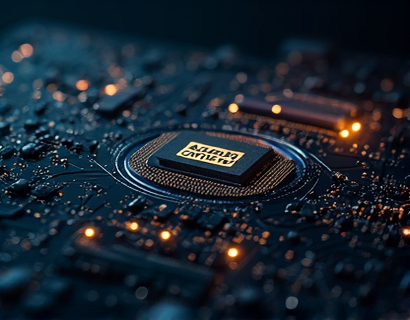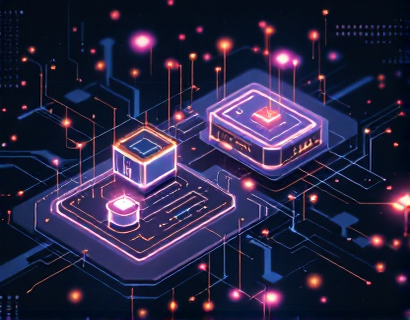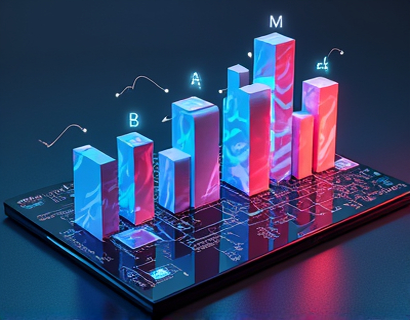Oracle Management and Blockchain Service Optimization: Advanced Solutions for Decentralized Applications
In the rapidly evolving landscape of blockchain technology, the role of oracle management and service optimization has become increasingly pivotal. This article delves into the advanced software solutions that are reshaping how developers and businesses interact with decentralized applications. By focusing on efficient oracle management and seamless service integration, we explore the tools and strategies that unlock the full potential of blockchain technology.
Understanding Oracle Management in Blockchain
Oracle management in blockchain refers to the process of integrating external data sources with smart contracts. These oracles act as bridges between the blockchain and the outside world, providing real-time data and enabling smart contracts to make informed decisions. Effective oracle management is crucial for the reliability and security of decentralized applications (dApps).
The primary challenge in oracle management lies in ensuring the accuracy, timeliness, and security of data fed into smart contracts. Traditional oracle solutions often suffer from single points of failure, latency issues, and trust concerns. Advanced software solutions address these challenges by implementing robust mechanisms for data validation, redundancy, and decentralized data sourcing.
Advanced Oracle Management Solutions
Modern oracle management platforms employ a multi-faceted approach to data integration. These solutions leverage a network of decentralized nodes to gather data from various sources, ensuring that no single point of failure can compromise the entire system. By distributing data collection across multiple nodes, these platforms enhance the reliability and resilience of the data feed.
One key feature of advanced oracle management solutions is their ability to perform real-time data validation. This involves cross-referencing data from multiple sources to identify and discard anomalies or outliers. Such validation mechanisms ensure that the data fed into smart contracts is accurate and trustworthy, reducing the risk of erroneous contract executions.
Security is another critical aspect of oracle management. Advanced platforms implement cryptographic techniques and consensus algorithms to secure data transmission and storage. This multi-layered security approach protects against tampering and unauthorized access, ensuring that the data integrity is maintained throughout the process.
Enhancing Blockchain Service Access
Beyond oracle management, optimizing access to blockchain services is essential for the seamless operation of dApps. This involves streamlining the interaction between smart contracts and external services, such as payment gateways, identity verification systems, and data marketplaces.
Advanced software solutions provide APIs and middleware that simplify the integration of these services with blockchain networks. By abstracting the complexities of blockchain interactions, developers can focus on building robust and user-friendly dApps without delving into the intricacies of blockchain protocols.
One significant advantage of these solutions is the ability to support multiple blockchain platforms. This interoperability ensures that dApps can leverage the strengths of different blockchains, such as Ethereum's smart contract capabilities and Binance Smart Chain's cost-effectiveness, without compromising on performance or security.
Boosting Smart Contract Capabilities
Smart contracts are the backbone of decentralized applications, automating and enforcing agreements without intermediaries. However, their full potential is often limited by the constraints of data availability and processing power. Advanced oracle management and service optimization solutions enhance smart contract capabilities by providing reliable and timely data inputs.
For instance, in financial dApps, accurate and up-to-date market data is crucial for executing trades and managing risks. Advanced oracles ensure that smart contracts have access to real-time market prices, enabling automated and efficient trading operations. This level of precision and reliability is essential for building trust in decentralized financial systems.
In supply chain management, smart contracts can track the movement of goods and verify the authenticity of products. By integrating with oracles that provide real-time location and status updates, smart contracts can automate compliance checks and ensure that all parties adhere to agreed-upon terms. This not only improves efficiency but also reduces the risk of fraud and errors.
Case Studies and Real-World Applications
To illustrate the practical benefits of advanced oracle management and service optimization, consider a few real-world applications. In the insurance industry, decentralized insurance platforms use smart contracts to automate claims processing. By integrating with oracles that provide real-time data on events such as natural disasters or accidents, these platforms can quickly verify claims and disburse payouts, reducing administrative delays and enhancing customer satisfaction.
Another example is in the realm of digital identity verification. Decentralized identity solutions leverage blockchain to give users control over their personal data. Advanced oracles can integrate with external identity providers, ensuring that the information fed into smart contracts is accurate and up-to-date. This approach not only enhances security but also empowers users to manage their digital identities securely and privately.
Challenges and Future Directions
Despite the advancements in oracle management and blockchain service optimization, several challenges remain. One major issue is the scalability of oracle networks. As the number of dApps and smart contracts grows, the demand for reliable and high-volume data feeds increases. Developing scalable oracle solutions that can handle large-scale data integration without compromising performance is an ongoing area of research and development.
Interoperability between different blockchain platforms is another challenge. While progress has been made, achieving seamless cross-chain interactions remains complex. Future solutions will likely focus on developing standardized protocols and frameworks that facilitate interoperability, enabling dApps to leverage the strengths of multiple blockchains effortlessly.
Moreover, the regulatory landscape for blockchain and decentralized technologies is still evolving. Ensuring compliance with varying legal requirements while maintaining the decentralized nature of dApps is a delicate balance. Advanced oracle management solutions must adapt to these regulatory changes, providing compliance tools and features to help businesses navigate the legal landscape.
Conclusion
Oracle management and blockchain service optimization are critical components in the development and deployment of robust decentralized applications. By addressing the challenges of data accuracy, security, and interoperability, advanced software solutions are paving the way for a more reliable and efficient blockchain ecosystem. As the technology continues to mature, we can expect to see even more innovative applications and use cases that harness the full potential of blockchain technology.










































